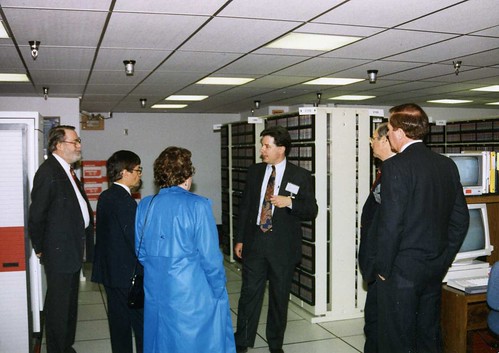I'm a fan of Ben Thompson's business analysis blog Stratechery. It's hard to say exactly what it's about. His background (such as it is; he's actually younger than his writing and analysis would lead you to believe) is an M.B.A. from the Kellogg School and a relatively brief career in marketing and strategy. But what he writes about is far broader than that. Even if I don't agree with him, he gives me much to think about.
His latest article, "Trump and Twitter", is why he supports Twitter's blocking of President Trump. This is not the first time that he has written that social media companies have to have the following priorities, from highest to lowest:
- liberalism is inviolable;
- democracy must be respected;
- bad policies should be opposed.
Here, liberalism isn't used here the Big-L Liberal political sense; it is used in the small-l liberal sense that we are
- governed by the rule of law, and
- have a guarantee of individual rights and personal liberty.
This is the way it's meant in the phrase "liberal democracy".
This is kinda like Asimov's Three Laws of Robotics: democracy only if it doesn't violate individual rights (the majority can't vote to take away someone's individual rights except in the case of the rule of law); oppose bad policies only in as much as they respect democracy and don't violate the rule of law or individual rights. And you have to remember that rule of law is the first liberal requirement.
I confess I'm still trying to decide whether I agree completely with this list of priorities; I'm inclined to say that I do, but I need to ponder the consequences of it. For example, our First Amendment rights to freedom of speech do not protect all speech (contrary to popular belief). So in fact, banning Trump from Twitter does not violate his right to freedom of speech, because speech that promotes hate, violence, and crime is not protected; that is the rule of law. Also, our First Amendment rights are regarding what our government can do, not what a company or individual can do; no one is required to provide someone a forum for their speech, protected or not (something else that people often don't understand).
The point here is the people who stormed the U. S. Capitol were following priority #3, while ignoring #2, and the "rule of law" part of #1.
I think using these three simple priorities as a kind of ethical checklist is the way I am heading. Is it complete? Probably not. But a lot of stuff other folks would want to add would actually fall under #3, opposing bad policies. The weakness in this is that you and I (and the yahoos that stormed the Capitol) may disagree what a exactly a "bad policy" is. But even as we disagree, we surely can agree that #1 and #2 come first.
Once you and I can agree on #1 and #2, we can have a civil, rational conversation about what falls under #3.
I look forward to that.


